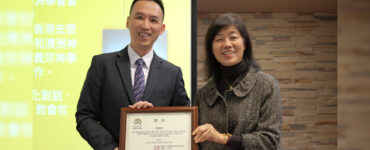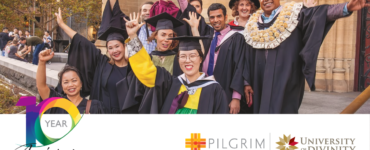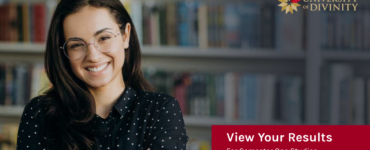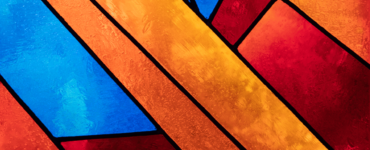The Reverend Professor Rowan Strong of Wollaston Theological College has recently been appointed as a Professor of the University of Divinity.
To mark the occasion, Vox interviewed Professor Strong about his career and research.
Would you tell us a bit about you, and your career highlights to date?
I was brought up in a lower-middle class suburban family in New Zealand and was the first generation to attend university. For a future Church Historian it was not a family in which there was very much practise of Christianity: my father was an explicit agnostic. But I always had a love of history as a child and that led me to Christianity and the Church. After a period of atheism at university I returned to a vocation to the Anglican priesthood that had developed at secondary school and was ordained in the Diocese of Wellington and later moved to Melbourne as Associate Priest in St Peter’s Eastern Hill, where I was also Director of the Institute for Spiritual Studies in the parish. During this time I also studied for an MTheol. at the Melbourne College of Divinity. Then I went to the University of Edinburgh for PhD studies in Ecclesiastical History, researching a thesis on a nineteenth-century Episcopalian bishop who was tried for heresy over his Anglo-Catholicism. Unexpectedly I returned to Australia as Lecturer in Church History in the Perth College of Divinity. In 1994 the PCD staff integrated into Murdoch University as Full-Time Equivalent staff in what become the most integrated Theology program in an Australian University. This arrangement ceased in 2021 and I am now Professor of Church History at Wollaston Theological College and the University of Divinity to help the college work out its future within the university.
Career highlights as a Church Historian include supervision under a world-class historian in Professor Stewart Brown; the lucky break in having my PhD thesis published almost immediately by Oxford University Press; working in a secular university and its consequent challenges of being in a Theology programme in such a diverse cultural environment; and being General Editor of The Oxford History of Anglicanism and a leader in an international project of over 100 scholars.
What originally drew you to study Church History?
A love of history; and you can’t get far in western history particularly without encountering Christianity, both its marvels and its horrors. Then, as a parish priest, I realised what a resource the history of Christianity was in helping parishioners understand their own Christian experience and life journey.
What drew you to the MCD (now UD) to study with us as a student for your thesis on the origins of Anglo-Catholic missions?
Studying for my Master’s degree at MCD enabled me to study part-time with my parish duties, and under the supervision of a Church Historian, Fr Austin Cooper, who understood the field better than a more secular historian. This is important as Church History requires not just a knowledge of the history of Christianity, but also of biblical studies and Theology.
What research projects are you currently working on?
Following my wife’s death three years ago my research work has been very fitful. In the grievous life I now live I have managed on-going research on Scottish Episcopalian for a couple of invited book chapters, and a chapter on the theology of Bishop Hale of Perth also for a forthcoming book. My major project has been on the life of Bishop John Coleridge Patteson, the first Bishop of Melanesia, but this has been made even more fitful by Covid-19 cessation of travel and access to archives overseas.
Which of these are you most passionate about and why?
The Bishop Patteson project has been with me the longest and I began it because I wanted to challenge some aspects of the prevailing historiography in Christian mission history, which has often viewed mission too negatively as merely agents of western imperialism and culture. While some of these negative dimensions are certainly true, much mission historiography fails to address the critical self-awareness of these issues by missionaries themselves and to account for the enthusiasm for Christianity by indigenous adherents.
What encouragement would you give to people thinking about studying Church History?
Please do it. Church History is now the Cinderella of the theological disciplines, compared with its pre-eminence in the mid-twentieth century. However, I consider it remains fundamental to the study of Theology as it provides the necessary historical context to all biblical, theological, and ecclesiastical developments. No one can study Church History without being uplifted by the repeated sacrificial lives of Christians and downcast by Christianity’s abject surrenders to power and sin. Church History critically studied produces a healthy scepticism about various Christian claims, but also a fondness and deep respect for our subject when those claims are authentically lived out over the past two thousand years.






I should like to enter into a dialogue with the Rev’d Dr Rowan Strong, regarding a particular aspect of his book: Chaplains of the RAN: 1912- Vietnam War
In hope,
I agree entirely with Chaplain Helyer about his unconscionable writing about naval chaplains in the sixties and seventies. He has misrepresented a group of fine Christian men who served the RAN faithfully. He caused unmeasurable distress to their families. How he can claim to be an accomplished historian beggar’s belief.
Is this the Rowan Strong who was at the College of Saint John the Evangelist, circa 1976-1978? I would be very pleased to make contact and to “chew the cud” regarding Rowan’s exploits in the years since.